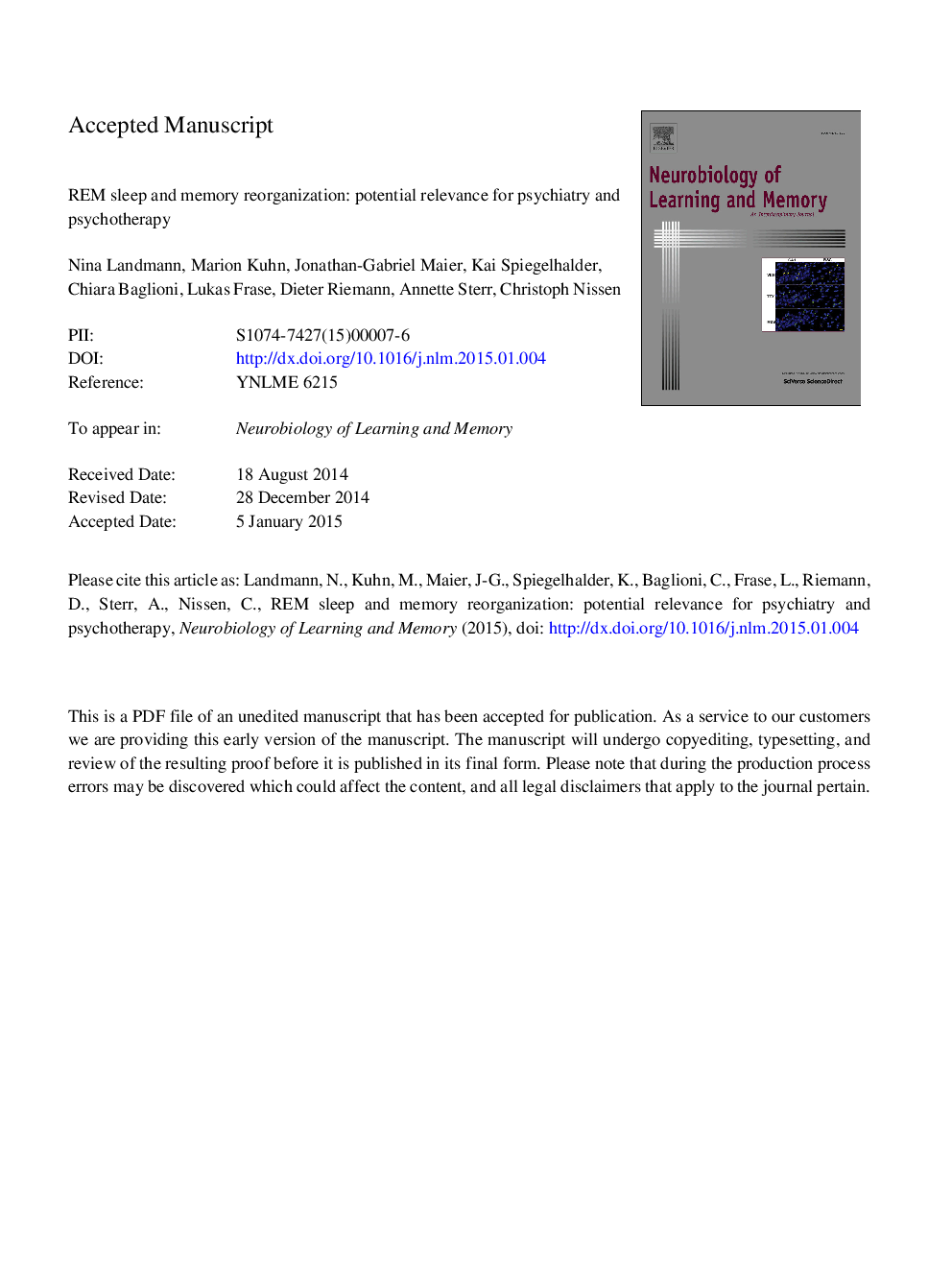| Article ID | Journal | Published Year | Pages | File Type |
|---|---|---|---|---|
| 7299414 | Neurobiology of Learning and Memory | 2015 | 46 Pages |
Abstract
Sleep can foster the reorganization of memory, i.e. the emergence of new memory content that has not directly been encoded. Current neurophysiological and behavioral evidence can be integrated into a model positing that REM sleep particularly promotes the disintegration of existing schemas and their recombination in the form of associative thinking, creativity and the shaping of emotional memory. Particularly, REM sleep related dreaming might represent a mentation correlate for the reconfiguration of memory. In a final section, the potential relevance for psychiatry and psychotherapy is discussed.
Keywords
SWSPPTLDTnon rapid eye movement sleepponto-geniculo-occipital wavesPGO wavesPedunculopontine tegmentumPosttraumatic stress disorderPTSDARASElectroencephalogramfunctional magnetic resonance imagingfMRILTPlaterodorsal tegmentumMemoryrapid eye movement sleepcreativitySleepNREM sleepREM sleepslow wave sleepPsychotherapyPsychiatryReorganizationCs+ascending reticular activating systemunconditioned stimulusconditioned stimulusEEG
Related Topics
Life Sciences
Neuroscience
Behavioral Neuroscience
Authors
Nina Landmann, Marion Kuhn, Jonathan-Gabriel Maier, Kai Spiegelhalder, Chiara Baglioni, Lukas Frase, Dieter Riemann, Annette Sterr, Christoph Nissen,
